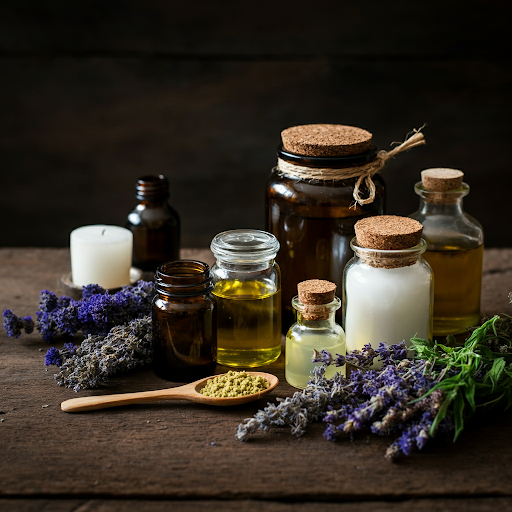

Infused oils are a natural way to experience the benefits of herbs for many uses from culinary to health and skin balance. These oils are amazing and if you haven’t tried them, you’re in for an amazing experience!
Choosing Oils
Carrier oils that are ideal for Infusing use include
Soybean Oil is a vegetable oil that’s extracted from the seeds of the soybean plant. It contains vitamin K, perhaps best known for its effect on blood clotting, it also plays a vital role in regulating bone metabolism and May support bone health, Soybean oil is rich in vitamin E, a nutrient that can help promote skin health. Applying it topically may protect against inflammation and help the skin retain moisture
Sweet Almond Oil comes from sweet almonds. Some people have found that almond oil has helped heal breakouts of various skin conditions. It is commonly used as an ingredient in many skin care and hair products. Almond oil is an emollient, which can help moisturize and smooth skin for chronic skin conditions such as: Psoriasis, Acne, Eczema, Dermatitis
Coconut Oil Lauric acid in coconut oil may have antimicrobial properties against a variety of harmful microorganisms. Coconut oil may help moisturize your skin and improve skin barrier function.
Hemp seed Oil Hemp is sometimes confused with marijuana. Limited evidence suggests hemp may benefit the heart, skin, and digestive tract. Hemp seed oil is different from CBD oil. CBD oil is extracted from the Cannabis plant and then combined with a base oil, such as coconut or olive oil. Hemp seed oil comes from hemp seeds only, not hemp leaves or buds. Hemp seed oil does not contain any psychoactive properties. You cannot use it to get "high."
Argan Oil Rich in fatty acids and antioxidants, argan oil is used for cooking, as well as for skin conditions, hair and cosmetic products. May Counter Effects of Aging in Skin. May Improve Knee Osteoarthritis
Castor oil Claims of castor oil benefits include that it may be used as a laxative, aid in childbirth and labor, relieve arthritis pain, stimulate hair growth. and moisturize skin. Research has shown that castor oil contains antibacterial properties that make it appropriate to apply to a wound.
Examples of herbs used in Infused oils
• Lavender not only soothes, but also works as a pain reliever, antibiotic, anti-viral, anti-fungal, and antibacterial.
• Rosemary can be used to create a vibrantly flavored culinary oil for use when roasting chicken or making your favorite pasta sauce. For the skin, rosemary-infused oil can be used in bath products, ointments, herbal hair oils and shampoo. With its antimicrobial and moisturizing properties, rosemary-infused oil is a popular support for an itchy scalp and dandruff (McIntyre, 1996). It is also used to support hair growth since rosemary is an invigorating herb that stimulates blood flow on the surface of the skin (Holmes, 1997; Hoffmann, 2003).
• Calendula flowers are used in topical preparations for soothing minor skin irritation, promote venous leg ulcer healing, rashes, chafing, pain and inflammation reducer and chapping.
• Yarrow leaves, or juice made from its leaves, have historically been applied directly to wounds to aid healing, anti-inflammatory and antioxidant, and cracked nipples due to breastfeeding.
Come Experience The Power of Nature with our Infused oils and Salves
https://carellc.live
Many Blessings,
Casharion Kirk RN, CCM, Clinical Herbalist
HighFiveHive Nature's Remedies-Kitchen Herbalism
Discover Natural Remedies That Heal the Mind, Body and Soul


